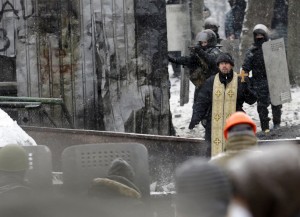
Suscipe me, Domine, secundum eloquium tuum, et vivam; et non confundas me ab expectatione mea.
Receive me, O Lord, according to your word, and I shall live: and let me not be ashamed of my hope.
I started this blog at the end of 2013 as a learning project. I had no plans of what I would learn but would journal an intentional study programme of the Rule of St Benedict. I called is ‘Parish Monasticism?’ The question mark was important as I didn’t know if such a concept would work or be helpful to frame my reflections.
Well, 1 year and 9 months later and ‘Parish Monasticism’ is a thing! Who’d have thought it. By ‘a thing’ I mean other people are using the term independent from me. I had a parish priest who met me at a training event early this year use it and ask if I had heard of the idea. I asked him where he had heard it and he told me he had been told about it by a friend and that there was a Facebook group called ‘Parish Monasticism’ (no question mark). It’s funny how things develop…
I began this blog with a hunch; a hunch and a challenge laid down by Rev. Pete Askew at the Northumbria Community during a placement I did at Nether Springs in Felton. He said to me,
It’s impossible to live the way of life we live here at Nether Springs and be a parish priest. You’d have to be very stubborn to achieve it.
I don’t know if it is my stubbornness or something else but an increasing number of parish priests and ministers are not only discovering the benefits of monastic principles to ministry but also feel a sense that God is calling them to commit to the location in an intentional, communal way with other disciples.
This is at the heart of what ‘parish monasticism’ is, I feel. What I’ve been discovering in theory and, only in some parts, in practise is a way to effectively minister and transform neighbourhoods and communities through these basic monastic principles. No, it’s more than that. Parish monasticism is about reformation of the parish system to an explicit commitment to discipleship. I’ve discovered that the lack of effective mission and evangelism is a result of faulty discipleship. As I wrote before,
If a community is not engaged in mission then their discipleship is faulty; mission is the fruit of the tree of discipleship. There is no point in just forcing a community to ‘do mission’ and expect it to work. It would be better to go back to the basics of discipleship, correcting that and the fruit of mission will grow. You judge discipleship by the mission. (Ned Lunn, ‘Chapter 49: observance of lent’, Parish Monasticism? (Jan 17th 2015))
As the Church we have lost sight, as it did in Germany before World War II, of the cost of discipleship. Dietrich Bonhoeffer’s observations and reflections on the antidote to this is what has fuelled the New Monastic movement and I think we are now beginning to discover that it must be planted within the parish system.
It must be within the parish system because there is something deeply counter-cultural for the increasingly urbanised 21st century Britain where transport is easy and more people consume worship and community rather than create/live it. Where we have no strength to withstand the temptation to make everything into our own image and just as we want it we justify or sanctify our freedom to choose where we go and what we do/allow in our lives. The parish system challenges that ego-centric part of each and everyone of us who refuses to allow something external to change our inner life.
This journey of discovery has unearthed the interconnected roots of the saints of old who speak so clearly to me; St Aidan, Thomas Merton, Dietrich Bonhoeffer, Shane Claiborne to name a few. In focussing my reflections I have discovered a call deep down within me that sings of a theology rooted in Ash Wednesday and the creation story; we are made of dust, we must fully grasp humility and acknowledge we are nothing without the tender touch of our Loving Father God, humanity needs transformation and grace. From this root it grows into an acceptance of God’s mercy and love reaching out to lift us up from humble beginnings to healing and salvation as God adopts us and works on us so we can conform to His Son, the perfection of humanity, Jesus Christ. When we give ourselves totally to this process of redemption in every part of our life He seals us with His Holy Spirit to equip us for the task of heralding in His Kingdom in our lives and the lives of those around us like the first discipleship at Pentecost.
It all begins with humility.
It all demands obedience.
It all leads to community.
Parish monasticism, for me, is an emerging call to intentional, radical discipleship that seeks to convert our entire life to that of Jesus and heals us of our capitalist consumer, neoliberal culture that Stanley Hauerwas critiqued 34 years ago. Are we willing to be a stumbling block to both poles of the political and moral map found in the UK today? Parish monasticism is not about being ‘relevant’ which is banded about so much, it is about being faithful to the distinctive call to follow Christ who came to heal and healing means things change! We look at the complexities and crisis facing us on every side of our world today and we keep kidding ourselves that we know how to solve them: we don’t! We desperately want our situation to change but Jesus changes situations by changing us… and that means you and me.
Thomas Merton, who I return to whenever I reflect on our self-identity crisis in our society, continues to inform me,
The reason we hate one another and fear one another is that we secretly or openly hate and fear our own selves. And we hate ourselves because the depths of our being are a chaos of frustration and spiritual misery. Lonely and helpless, we cannot be at peace with others because we are not at peace with ourselves, and we cannot be at peace with ourselves because we are not at peace with God. (Thomas Merton, The Living Bread (London: Burns and Oates, 1976) p.9)
This is the root of our problem. This is where real conversion and deep discipleship works out the healing and salvation of God’s grace, mercy and love for us.
So let us humbly acknowledge our total need for change. Let us obediently follow our healer’s instruction towards salvation and let us be adopted, by grace, into his family and live in true peace with him, ourselves and with others.
 …Ok. Since I wrote that reflection there has been a growing sense of some footing being lost amongst us. We have felt, at different moments, that we have lost our way or the passion has waned. This has been due to various small events in the life of our community which have combined to create not a destruction or a despair but a niggle, a question to arise: what are we doing?
…Ok. Since I wrote that reflection there has been a growing sense of some footing being lost amongst us. We have felt, at different moments, that we have lost our way or the passion has waned. This has been due to various small events in the life of our community which have combined to create not a destruction or a despair but a niggle, a question to arise: what are we doing? A wise brother amongst us wrote a deeply honest and profound response to my call for a discussion. He named the beauty of Burning Fences as ‘a clearing’. He writes,
A wise brother amongst us wrote a deeply honest and profound response to my call for a discussion. He named the beauty of Burning Fences as ‘a clearing’. He writes, This is our quest: to inhabit, together, No-Man’s Land. To share the space making no claim on it for ourselves or the parties, agendas and personal empires which we are tempted to enforce. We desire, however, to build our home there for to be at peace one must feel a sense of belonging. To what are we committing and how can that be spoken in this between place?
This is our quest: to inhabit, together, No-Man’s Land. To share the space making no claim on it for ourselves or the parties, agendas and personal empires which we are tempted to enforce. We desire, however, to build our home there for to be at peace one must feel a sense of belonging. To what are we committing and how can that be spoken in this between place?